Contpark specializes in offering a robust terminal management solution. Its platform includes features for real-time visibility, workflow automation, and security, simplifying terminal operations and increasing productivity.
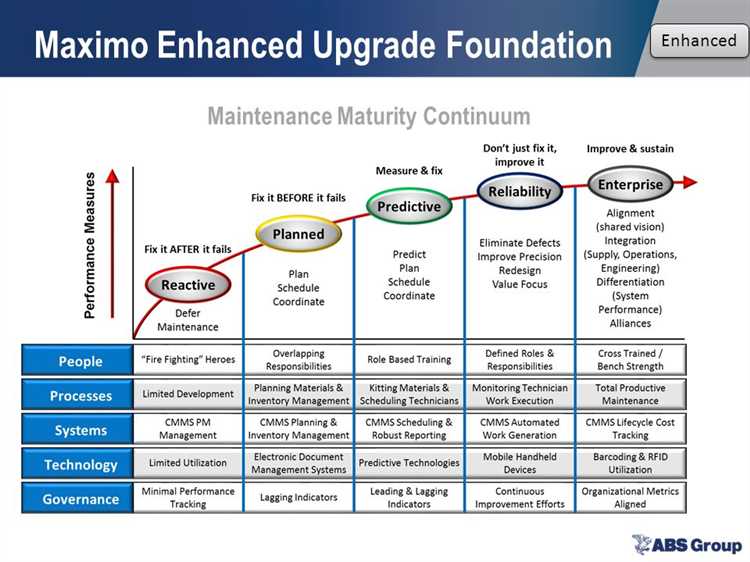
A reefer monitoring system is a vital component in the efficient and secure management of the cold chain. It provides goods with protective measures, ensuring compliance with safety and quality regulations. This essential technology allows for real-time tracking and monitoring, both during transportation and in cold storage operations.
The reefer monitoring system offers proactive insight into the condition of refrigerated units, enabling efficient troubleshooting and prevention of any potential interruption in the cold chain. It integrates sensors, GPS, wireless communication, and intelligent software to provide accurate and timely alerts, enabling prompt action to be taken in case of any deviations from the required temperature and humidity levels.
By enhancing traceability and traceability, the reefer monitoring system provides a comprehensive report on the entire journey of goods, from dispatch to arrival. It enables the analysis of data to identify areas for improvement in the supply-chain, ensuring the preservation of product integrity throughout the entire process. This real-time monitoring and communication platform also facilitates automated compliance reporting, streamlining the cold chain management process.
A reefer monitoring system is a critical tool in cold chain management that enhances efficiency and security by providing real-time monitoring and analysis of refrigerated units and environmental conditions. This intelligent system uses sensors and telematics technology to collect data on the performance, maintenance, and control of reefer vehicles and storage facilities.
By continuously monitoring the cold chain operation, the reefer monitoring system offers insight into the inventory, traceability, and safety of goods. It provides proactive alerts and warning notifications to prevent interruption and optimize the efficiency of the fleet. The system also aids in compliance with regulatory standards by ensuring proper temperature control, asset tracking, and documentation.
The reefer monitoring system enables remote troubleshooting, allowing for prompt action and prevention of potential issues. It offers a comprehensive platform for data collection, analysis, and reporting, providing a centralized hub for monitoring and managing the entire cold chain process. This technology ensures the efficient dispatch and management of reefer vehicles, optimizing the transportation of perishable goods.
With the reefer monitoring system, businesses have greater control and traceability over their cold chain infrastructure. They can monitor the environmental conditions, performance, and maintenance of their reefer units, ensuring the preservation and quality of chilled goods. The system’s intelligent software also helps to identify areas for improvement, enhancing the overall efficiency and cost-effectiveness of cold chain operations.
Ultimately, a reefer monitoring system is a vital tool in the cold chain industry, providing enhanced security, efficiency, and insight into the storage and transportation of perishable goods. By combining advanced technology, remote monitoring, and proactive prevention, this system enables businesses to optimize their operations and ensure the safe delivery of goods to customers.
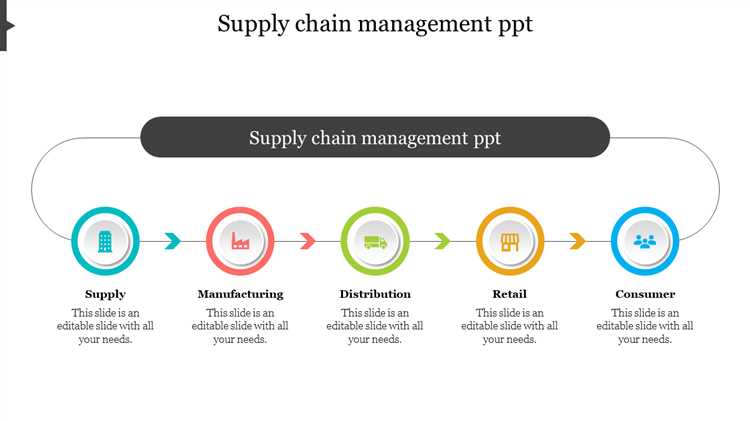
A reefer monitoring system is a technological solution designed to enhance efficiency and security in cold chain management. It is a comprehensive system that combines monitoring, control, and tracking capabilities to optimize the operations of refrigerated vehicles and storage facilities.
The main purpose of a reefer monitoring system is to monitor and control the conditions of refrigerated environments in real-time. By leveraging advanced technology and telematics, the system continuously monitors and analyzes various critical elements, such as temperature, humidity, pressure, and door status. The data is then transmitted through a communication infrastructure to provide timely updates and alerts to the operators.
With proactive monitoring and real-time notifications, the reefer monitoring system enables efficient preventive measures and troubleshooting. It helps in ensuring the integrity and preservation of sensitive goods, such as pharmaceuticals, perishable food items, and other temperature-sensitive products. Compliance with regulatory guidelines and quality standards is also facilitated through comprehensive reporting and analysis.
Furthermore, the reefer monitoring system integrates with the overall supply chain management, providing end-to-end visibility and control. It enables fleet operators and shipping companies to track the performance of their refrigerated vehicles and ensure compliance with temperature and storage requirements. This integration enhances overall operational efficiency and reduces the risk of product spoilage or loss.
In summary, a reefer monitoring system is a technologically advanced solution that combines monitoring, control, and tracking functionalities to optimize the cold chain management. It provides real-time monitoring and communication capabilities, proactive alerts, and comprehensive reporting to enhance efficiency, security, and compliance in the transportation and storage of temperature-sensitive goods.
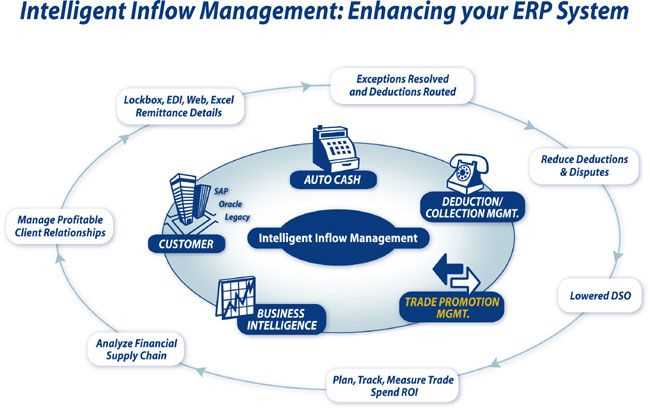
Cold chain management is a critical aspect of the transportation and logistics industry, especially when it comes to the preservation and transportation of temperature-sensitive goods. It involves the effective monitoring and control of the cold chain elements to ensure the integrity and safety of refrigerated units, vehicles, and containers throughout the supply chain.
Real-time data analysis is essential in cold chain management to monitor and optimize the performance of reefer units. By leveraging intelligent software and wireless sensors, the temperature and environmental conditions can be continuously monitored and analyzed. This allows for efficient control and immediate alerts or warnings in case of any deviations, ensuring the safety and quality of the goods being transported.
Efficient cold chain management also plays a crucial role in traceability and inventory control. By integrating GPS technology with reefer monitoring systems, it becomes possible to track the location and movement of the goods in real-time. This not only helps in optimizing the shipping routes but also enables better management of the inventory and reduces the risk of theft or loss.
The integration of cold chain management solutions in the maritime industry is particularly important. With the challenges of long journeys and varying environmental conditions, it is crucial to have a robust system in place to monitor and control the temperature and other critical parameters of the refrigerated containers. This helps in preserving the quality and safety of the goods and ensures compliance with regulatory requirements.
In conclusion, cold chain management is of utmost importance in the transportation and logistics industry. With the use of advanced monitoring and control systems, it becomes possible to efficiently protect and monitor the cold chain throughout the supply chain. By ensuring optimal temperature conditions, traceability, and safety, the integrity of the goods can be preserved, leading to improved customer satisfaction and business success.
When it comes to the transportation of perishable goods, such as refrigerated or chill products, ensuring product quality and safety is of utmost importance. Any interruption or failure in the cold chain management can result in damaged or spoiled goods, leading to financial losses and potential health risks for consumers.
Reefer Monitoring System provides a comprehensive solution to control and protect product quality throughout the entire supply chain. By using advanced technology, such as GPS and environmental sensors, the system allows real-time monitoring and analysis of temperature, humidity, and other critical factors during transportation and storage.
Through wireless sensor collection and data analysis, Reefer Monitoring System offers proactive measures to prevent any potential issues. It provides notifications and warnings about temperature fluctuations or other anomalies, allowing for immediate troubleshooting and corrective action to be taken. With this real-time insight, proactive measures can be implemented to ensure optimal performance and compliance with industry standards.
The system also offers traceability and inventory management capabilities, providing detailed reports and alerts on the condition and location of goods at any given time. This ensures that suppliers and customers have full visibility and control over their product’s journey, facilitating efficient dispatch and reducing the risk of delays or errors. By utilizing this comprehensive platform, cold chain management becomes more efficient, secure, and reliable.
The implementation of an intelligent reefer monitoring system is becoming increasingly important in meeting regulatory requirements in the maritime cold chain industry. With sensitive and perishable goods being transported, it is essential to ensure their integrity and safety throughout the supply chain.
Protective measures, such as real-time monitoring and analysis of reefer performance, allow for proactive prevention of potential issues and optimization of cold chain management. With the integration of telematics and wireless communication technology, fleet vehicles and containers can be monitored for temperature and environmental conditions, ensuring the preservation of goods.
The use of GPS tracking and container monitoring software provides insight into the operation and performance of the cold chain system. This allows for better inventory management, as well as timely maintenance and preventive measures to be taken in case of any abnormalities or deviations from the required standards. By implementing these measures, the cold chain can maintain the integrity of the goods and prevent any potential risks to their quality.
Meeting regulatory requirements also involves ensuring the security of the cold chain infrastructure. With the integration of security measures and protocols, such as access control and video surveillance, the transportation of sensitive goods can be closely monitored and controlled. This provides an added layer of security and prevents unauthorized access or tampering with the goods.
In summary, an intelligent reefer monitoring system is essential in meeting regulatory requirements in the maritime cold chain industry. It allows for the proactive optimization of cold chain management, ensuring the integrity and safety of sensitive goods. By implementing real-time monitoring, preventive measures, and security protocols, the cold chain can operate efficiently and securely, meeting the necessary regulatory standards.
Minimizing inventory losses and wastage is a crucial aspect of cold chain management. By implementing a reefer monitoring system, businesses can effectively monitor and control their sensitive goods throughout the entire supply chain.
One of the key benefits of this system is its ability to provide real-time insight into the environmental elements that can affect the quality and safety of perishable goods. Temperature, humidity, and other factors can be tracked and monitored, ensuring that the cold-chain solution maintains the optimal conditions for preservation.
With advanced telematics and communication capabilities, the system can provide timely data and alerts to the stakeholders involved in the transportation and storage of refrigerated goods. This allows for proactive action to be taken in case of any deviation from the desired temperature or other parameters.
The system also offers traceability and tracking features, enabling businesses to have a complete picture of their cold-chain operations. From maritime shipping to inland transportation and storage, the system can provide valuable information on the location, temperature, and integrity of each asset or shipment.
Efficient fleet management and maintenance are also facilitated by the system. Through GPS tracking and performance analysis, businesses can optimize their delivery routes, schedule maintenance tasks, and ensure the efficient use of their refrigerated vehicles.
Overall, the reefer monitoring system provides an intelligent solution for minimizing losses and wastage in cold chain management. By integrating data collection, analysis, and software platforms, businesses can enhance the efficiency and security of their operations, ultimately reducing the risk of interruptions in the cold-chain and preserving the quality of their sensitive goods.
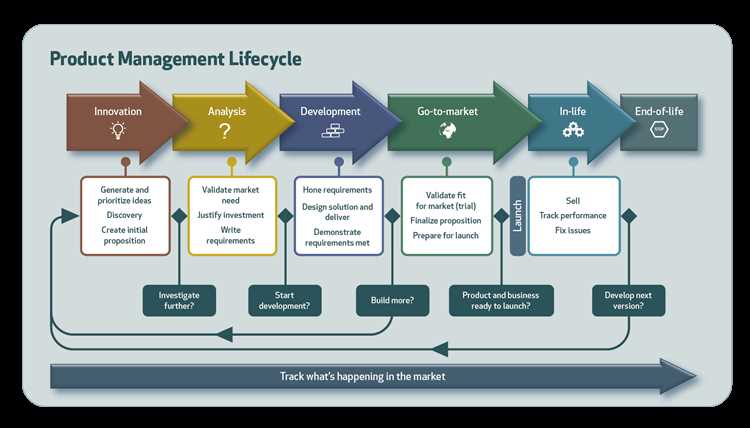
A Reefer Monitoring System is designed to enhance efficiency and security in cold chain management. It works by providing real-time monitoring and control of the supply, inventory, storage, and transportation of refrigerated goods.
At the core of the system is a sophisticated supply-chain infrastructure, which includes reefer units equipped with environmental sensors and communication capabilities. These sensors collect data on temperature, humidity, and other relevant parameters, allowing for precise control of the refrigeration units and preservation of cargo integrity.
The data collected by the sensors is wirelessly transmitted to a centralized platform, where it is analyzed and processed in real-time. This provides valuable insights into the condition of the cargo, allowing for proactive maintenance, troubleshooting, and prevention of any potential issues or deviations from optimal conditions.
The monitoring system also integrates GPS and telematics technology, enabling real-time tracking of the vehicles carrying the reefer units. This allows for efficient logistics management and ensures that the goods are transported in a timely and secure manner.
Through remote monitoring and control, the chill chain can be maintained at the desired temperature, ensuring the protective and optimal condition of the cargo throughout its journey. In case of any anomalies or deviations, the system provides instant alerts and warning signals, allowing for immediate action to be taken to rectify the situation.
Overall, a Reefer Monitoring System enhances efficiency and security in cold chain management by providing intelligent insights, integrated communication, and proactive management of the entire supply chain.
The Reefer Monitoring System is an intelligent system that enhances the efficiency and security of cold chain management in various industries. It combines refrigeration and monitoring technology to provide real-time insights into the condition and performance of refrigerated assets.
This system consists of a network of sensors and wireless communication devices that collect and transmit data from refrigerated units, vehicles, and storage facilities. These sensors monitor critical parameters such as temperature, humidity, and inventory levels, ensuring that the cold chain is maintained and compliant with industry standards.
The data collected by the system is processed and analyzed through software platforms, which generate detailed reports and alerts. These reports provide valuable insights on the performance of the refrigeration infrastructure, allowing for proactive maintenance and optimization of the cold chain process.
With the Reefer Monitoring System, supply chain managers have real-time visibility into the status of their assets, enabling them to make informed decisions and take immediate action in case of any deviation from the desired conditions. The system also includes GPS tracking, which allows for real-time monitoring of shipping containers and maritime transport.
One of the key features of this system is the ability to send notifications and warnings in case of any deviation from the desired conditions. These alerts can be sent to designated personnel, allowing for quick response and corrective measures to be taken.
In conclusion, the Reefer Monitoring System offers a comprehensive solution for cold chain management. It enables efficient control and monitoring of refrigerated assets, ensuring compliance with industry standards and optimizing the overall efficiency of the supply chain logistics.
The Reefer Monitoring System (RMS) has several key components and features that enhance efficiency and security in cold chain management.
Overall, the Reefer Monitoring System enhances the efficiency and security of cold chain management through its innovative features such as remote monitoring, real-time alerts, automated performance analysis, and intelligent software platform.
A reefer monitoring system offers numerous benefits for businesses involved in the transport and storage of controlled and sensitive goods, particularly in the cold-chain supply. By implementing this system, companies can enhance efficiency and security in their operations.
In conclusion, a reefer monitoring system offers several key benefits for businesses involved in the transportation and storage of sensitive goods. It provides real-time monitoring, efficient asset management, enhanced traceability, and improved security. By implementing this system, companies can enhance efficiency and security in their operations, ultimately leading to increased customer satisfaction and business success.
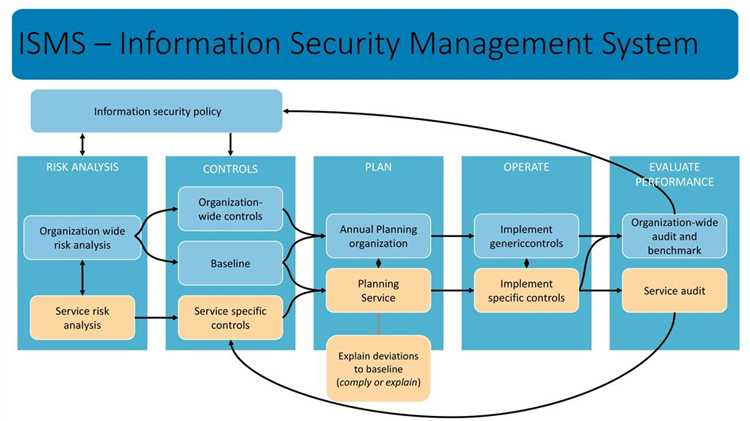
Real-time temperature and humidity monitoring is an essential component of a reefer monitoring system, ensuring the integrity and safety of goods during transportation and storage. Through communication and integration with the reefer units, the system provides proactive measures to prevent any interruptions in the refrigeration and preservation processes.
Intelligent tracking technology enables real-time monitoring of the temperature and humidity inside the refrigerated container or reefer vehicles. This data is then relayed to the central management system, allowing for automated monitoring and dispatch of notifications in case of critical temperature or humidity levels. By receiving immediate warning messages, logistics and shipping companies can take necessary actions to prevent any damage to the goods or maintain the safety of the storage environment.
In the maritime supply-chain, real-time temperature and humidity monitoring plays a crucial role in the management of reefer containers. The integration of GPS and telematics technology enhances the security of the reefer units and enables efficient monitoring and control of the entire fleet. This integration also allows for the establishment of a proactive maintenance schedule, ensuring the optimal functioning of the refrigeration infrastructure.
By implementing a real-time monitoring system, companies can significantly improve the efficiency and security of their cold chain management. The continuous tracking and monitoring of temperature and humidity levels enable prompt corrective actions and preventive measures, minimizing the risk of spoilage, quality degradation, and financial losses. Furthermore, the preservation of the goods’ integrity throughout the supply-chain enhances customer satisfaction and trust in the company’s logistics capabilities.
In the logistics operation, reefer containers play a crucial role in the transportation of sensitive goods. Any interruption in their environmental conditions can lead to the deterioration of the products, risking their quality and integrity. To ensure the security and efficiency of the cold-chain supply, remote control and management solutions are essential.
Reefer monitoring systems equipped with intelligent sensors allow for real-time tracking and control of temperature, humidity, and other relevant conditions. The collected data is transmitted wirelessly and integrated into a centralized platform, providing comprehensive traceability and monitoring for each vehicle in the fleet.
With remote control capabilities, operators can monitor the performance of the reefer containers and implement necessary measures to optimize their function. Troubleshooting can be done remotely, minimizing the need for physical intervention and preventing any delays in shipping. By utilizing GPS and other tracking technologies, the software can also provide real-time location information for enhanced security and efficient coordination.
Integration of remote control and management technology into the cold-chain supply ensures that the sensitive goods are preserved under controlled conditions throughout the entire transportation process. By effectively monitoring and controlling the elements of temperature, humidity, and other environmental factors, the cold chain integrity is maintained, reducing the risk of spoilage or damage.
Data analysis and reporting are integral parts of a reefer monitoring system, enhancing efficiency and security in cold chain management. By collecting and analyzing data from various sensors, such as temperature and humidity sensors, the reefer monitoring system provides valuable insight into the condition of the goods during transportation and storage. The data is collected and transmitted to a centralized platform, where it can be accessed and analyzed in real time.
With the help of advanced analysis algorithms, the reefer monitoring system can detect and alert users to anomalies and deviations from set parameters, allowing for quick intervention and prevention of any potential issues. By continuously monitoring the temperature, humidity, and other environmental factors, the system ensures the integrity and safety of the goods throughout the supply chain.
The data analysis and reporting capabilities of the reefer monitoring system also enable efficient asset management and optimization. By analyzing the performance of reefer containers and other assets, the system can provide recommendations for maintenance and optimization, ensuring that the assets are running at their best. This not only improves efficiency but also reduces the risk of interruptions in the cold chain and ensures the efficient preservation of goods.
Furthermore, the data analysis and reporting features allow for seamless integration with other systems and platforms, such as transportation and storage management software. This integration enables real-time monitoring and reporting of the reefer containers’ status, allowing for better coordination and decision-making. The system can also generate automated alerts and notifications, informing users about critical events and helping them take immediate action to ensure the security and quality of the goods.
In summary, data analysis and reporting play a crucial role in a reefer monitoring system, providing valuable insights and alerts for efficient and secure cold chain management. With advanced algorithms and seamless integration, the system allows for optimized asset performance, prevention of interruptions, and compliance with regulatory standards. The reefer monitoring system offers a comprehensive solution for ensuring the efficiency, safety, and integrity of the cold chain.
The cold chain management system plays a critical role in maintaining the quality and safety of perishable goods throughout their journey. To enhance efficiency in this process, it is essential to have a reliable and intelligent reefer monitoring system in place.
One of the key elements of enhancing efficiency is real-time monitoring and tracking of the refrigerated units. By integrating GPS and telematics technology, this system allows for the collection of data on temperature, humidity, and other environmental factors. This data provides valuable insight into the condition of the cargo and enables proactive troubleshooting and prevention of any potential issues.
The use of advanced sensor technology enables the monitoring of critical parameters, such as temperature, with high precision. In the event of any deviation from the desired range, the system can issue warnings and alerts, allowing for immediate action to be taken. This ensures that the cold chain is maintained, and the quality and safety of the goods are not compromised.
Efficiency in cold chain management is also enhanced through the automation of various processes. With the help of intelligent software platforms, tasks like data collection, analysis, and reporting can be streamlined. This reduces the risk of human error and ensures that the information is readily available for decision-making and compliance purposes.
Another crucial aspect of efficiency is the integration of the reefer monitoring system with other elements of the supply chain. By establishing seamless communication and data-sharing between different stakeholders, such as shipping companies, logistics providers, and regulatory authorities, the entire process becomes more streamlined and transparent.
Overall, by implementing a robust reefer monitoring system, cold chain management can be significantly enhanced. The system provides real-time tracking, proactive maintenance, and efficient data collection and analysis. This leads to improved safety, quality, and traceability of the perishable goods throughout their journey, ensuring customer satisfaction and regulatory compliance.
Cold Chain Management refers to the process of overseeing and managing the transportation, storage, and handling of temperature-sensitive products, such as perishable food items, vaccines, and pharmaceuticals, to ensure their quality and safety.
Efficiency is important in Cold Chain Management because it helps minimize product spoilage, maintain product integrity, reduce costs, and ensure timely deliveries. It allows for better resource allocation, improved visibility, and the ability to quickly identify and address any issues or deviations that may occur during the transportation and storage process.
Some key factors that can enhance efficiency in Cold Chain Management include proper planning and forecasting, effective temperature monitoring and control, strong partnerships with reliable logistics providers, use of temperature-controlled packaging and equipment, clear communication and coordination between all parties involved, and continuous training and education for staff members.
Technology can play a crucial role in enhancing efficiency in Cold Chain Management. It can provide real-time visibility into the location and condition of products, enable automated temperature monitoring and control, facilitate data collection and analysis for better decision-making, streamline documentation and record-keeping processes, and allow for proactive identification and resolution of any potential issues or deviations.
Some potential challenges in achieving efficiency in Cold Chain Management include unexpected temperature excursions, inadequate infrastructure and facilities, lack of standardized processes and regulations, limited access to technology and data, and human error. Additionally, changing weather conditions, natural disasters, and geopolitical factors can also pose challenges to maintaining an efficient cold chain.
Companies can measure and monitor the efficiency of their Cold Chain Management processes by tracking key performance indicators (KPIs) such as on-time deliveries, temperature compliance rates, product integrity, inventory accuracy, and customer satisfaction. They can also use data analytics and reporting tools to analyze trends, identify areas for improvement, and implement corrective actions as needed.